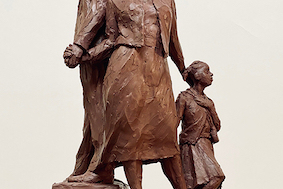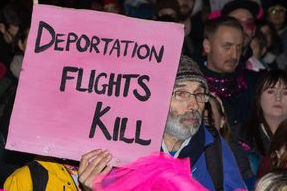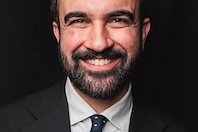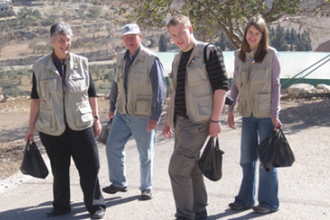Experiences of the Windrush Generation
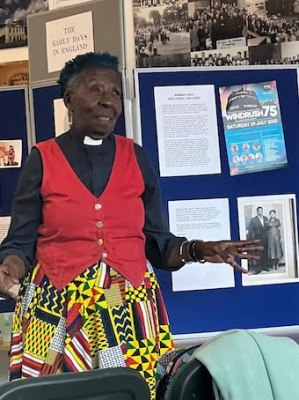
Canon Eve Pitts
The National Justice and Peace Network, meeting in Birmingham on Saturday, heard Rev Canon Eve Pitts, the first black woman vicar in the Church of England and long-standing campaigner for racial justice, speak on the experiences of the Windrush generation and issues to address today. Ann Farr reports:
Yesterday, individual members and representatives of member organisations gathered in Birmingham from different parts of the country for the NJPN Networking Day. We were privileged to hear Rev Eve Pitts speak. Sharing the personal story of her family gave us a real picture of the experiences of her parents' generation and of their children.
Invited here by the UK Government, and in person by no other than Enoch Powell, to help rebuild Britain after WW11, many left professional work and middle class homes to answer the call to come to the 'Mother Country'! A number travelled on the now famous ship, Windrush, that has given its name to that generation.
Eve, dramatically and poignantly, described the reality of their experience here. They were faced with the infamous notices in the windows of rental accommodation: 'No Blacks, No Irish, No Dogs'. Forced to live where they could, they were often in dirty, cramped rooms, sharing even beds with strangers. "They lost their identity and were made to feel, 'less than …'"
Things were so awful that they discussed how long they would stay and decided that five years was the limit. A family trunk was bought and, as savings allowed, items for the return journey were added. Many families still have those trunks, as the return journey was not made, but they have always been a reminder of that intended journey.
Eve described the feelings of the children growing up here, of hearing their parents crying and hurting and not knowing what to do. They heard the 'Lament of Leaving', as parents despaired about the situation they found themselves in, in contrast to their lives at home. The children held meetings to talk about this, without telling their parents.
99% of Caribbean people are Christians, used to attending church, but their experience in churches here was not always welcoming. As a young girl, Eve attended a church that told her not to return because she asked too many questions about the God they presented!
Finances also caused problems as banks refused to lend money or provide mortgages to black people! They saved money cooperatively, in groups similar to Credit Unions, called Partners' Money. They saved in £20 amounts, joining with others if they could not gather that much themselves. Gradually, families were given the opportunity to buy their own homes.
The first black woman vicar in the Church of England, Eve described her calling to be a priest, after her years of challenging the God that was presented as demanding conformity and meekness. Not the God she experienced!
As a life-long campaigner for racial justice, Eve said that in working for justice we have to be aware of history, including the nitty gritty bad bits. Then we have to work out what we do with all this information.
In discussions after her talk, participants mentioned our shame in being so ignorant of Black History and an education system that glorifies the colonisation of other countries. The colonisers stripped them of their assets and boasted about the imposition of an alien culture that was felt to be superior.
We questioned both the past and present inhumanity towards refugees and immigrants and that many English people travelled and lived as economic migrants in so many different parts of the world but others coming here were treated so badly.
Eve finished by mentioning that members of her community often ask her for help in attempting to complete the Windrush compensation forms, that are vague and very difficult to navigate. She said the Windrush generation had come in great hope and with generosity and were treated abominably. No amount of compensation can make up for the inhumanity with which they have been treated.
Elsewhere in the day, participants - including diocesan representatives, Pax Christi, the Passionist community, a Christian Climate Action/Laudato Si animator, a Holy Ghost priest, the Chaplain from the Birmingham West Indian Chaplaincy, and Coventry Justice and Peace Group - heard reports and viewed resources on display. Issues being addressed around the country included climate change, ecology, the arms trade, refugee support, and fossil fuel divestment.
The day ended with a short time of quiet, led by Ann Farr, reflecting on all we had shared during the day to remember those whose stories we had heard, those in our network who are unwell and those unable to join us. In the closing days of the World Week for Peace in Palestine and Israel we shared the prayer 'Among the Rubble' from Pax Christi's Prayer and Action Card.
LINK




